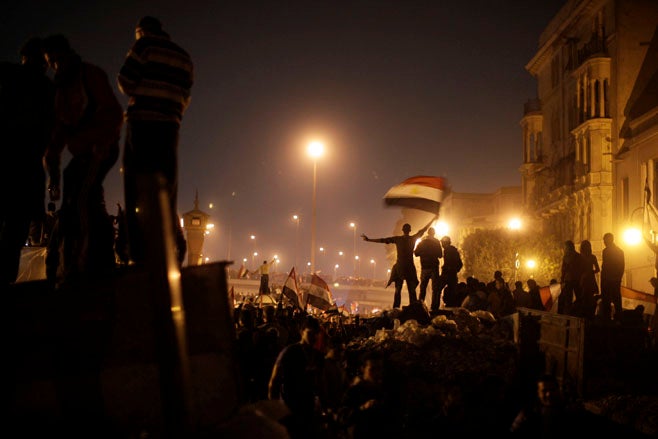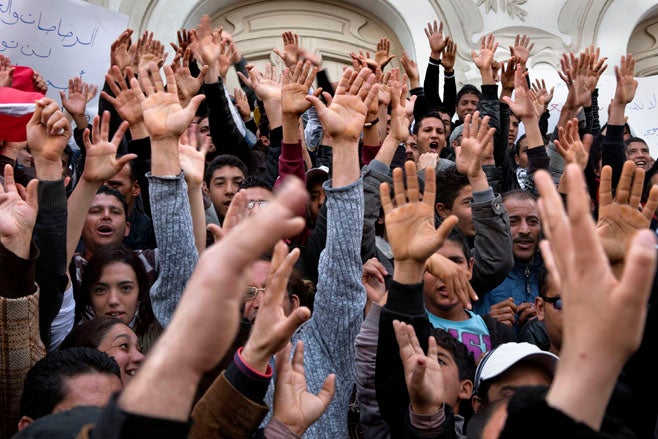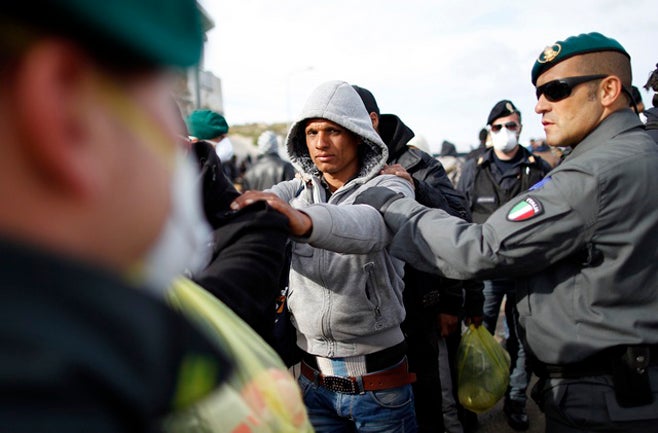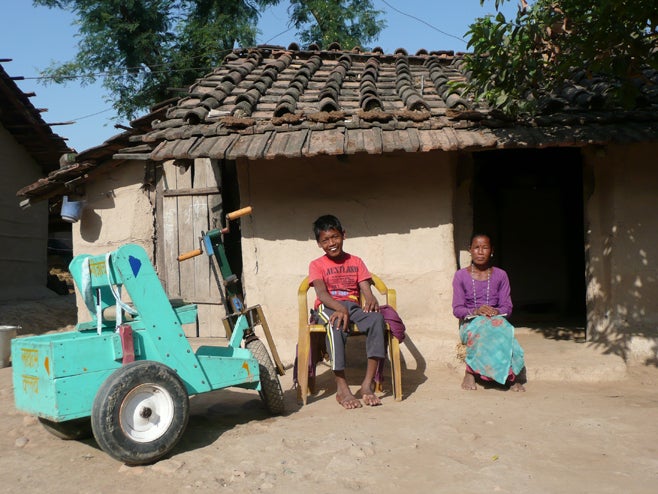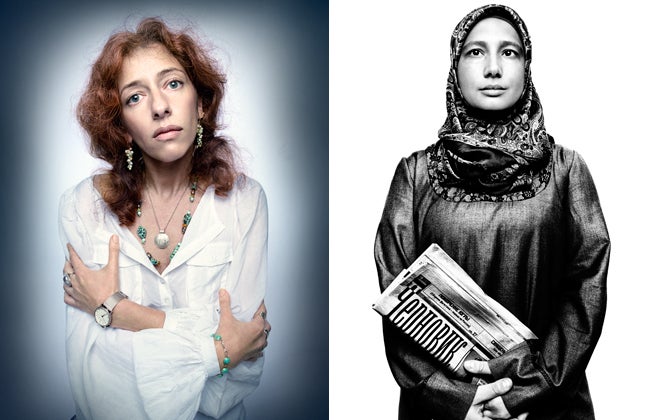President Alpha Condé, who was elected in largely free and fair elections in December 2010, made limited progress in addressing the serious governance and human rights problems he inherited. The elections ended a period of profound political instability that began in December 2008, when Captain Moussa Dadis Camara seized power in a coup after the death of Lansana Conté, Guinea’s authoritarian president of 24 years.
Progress towards a full transition to democratic rule and greater respect for the rule of law was undermined by delays in organizing parliamentary elections, rising ethnic tension, the president’s frequent use of the presidential decree, and inadequate gains in strengthening the chronically neglected judiciary.
Continued indiscipline by members of the security services and the July attempted assassination of President Condé, allegedly by disgruntled members of the army, illuminated the fragility of recent democratic gains. However, there were some efforts to professionalize and reduce the size of the 45,000-strong security sector, which has long been steeped in a culture of indiscipline and impunity.
There was inadequate progress for ensuring accountability for past atrocities, notably the 2007 and 2009 massacres of unarmed demonstrators by security forces. Preliminary moves towards establishing a reconciliation commission and independent human rights body were positive steps; however, inadequate consultation with civil society about the composition and mandate of these institutions threatened to undermine their efficacy. President Condé took a few concrete actions to improve the state of the judiciary and address endemic corruption.
International actors—including France, the United States, European Union, Economic Community of West African States (ECOWAS), and African Union—exerted pressure on President Condé to organize parliamentary elections, but they remained virtually silent on the need for justice for past crimes.
Truth and Reconciliation Commission and Independent Human Rights Institution
In June Condé issued a presidential decree creating a “Reflection Commission” to promote reconciliation, and in August appointed two leading religious figures as co-presidents. There was, however, inadequate consultation with civil society about the mandate, composition, or powers of the commission. While the president appeared to limit its mandate to promoting reconciliation, local human rights groups pushed for a commission that could meaningfully address impunity, including the inclusion of provisions to recommend individuals for prosecution.
Communal violence in the southeast that left some 25 dead in May, the appointment by the president of a disproportionate number of senior civil servants from his Malinke ethnic group, and rising tension between the Malinke and Peuhl communities demonstrated the urgent need for a truth and reconciliation mechanism with the capacity to make recommendations aimed at addressing the root causes of communal conflicts.
The new 2010 constitution mandated the establishment of Guinea’s first-ever independent national human rights institution. In July the ad hoc parliamentary body passed a law establishing the National Human Rights Commission, to be comprised of 20 members from all over the nation. Civil society groups have raised concerns over inadequate consultation about the mandate and composition of the commission.
Parliamentary Elections and Governance
The president’s insistence on redoing the electoral register and a leadership crisis within the national electoral body delayed parliamentary elections (not held since 2002) and generated considerable frustration within Guinean civil society and among the country’s international partners. Progress on addressing corruption included eliminating discretionary funds within various ministries, passing a new mining code envisioned to improve management of Guinea’s extensive natural resources, and establishing a hotline to report cases of graft and state corruption.
On several occasions the president appeared to use the security forces and judiciary for partisan ends. In April the government banned a gathering to welcome back to Guinea an opposition leader. Several opposition supporters were later tried and convicted for their participation in the gathering. In July all media outlets were banned from reporting on the attack against the president, and in September the government disallowed a ceremony by human rights groups and a march by the political opposition to commemorate the 2009 massacre. In the absence of a functioning parliament, the president frequently issued presidential decrees.
Judiciary and Detention Conditions
Decades of neglect and manipulation of the judiciary by successive regimes have led to striking deficiencies in the sector and have allowed perpetrators of all classes of abuses to enjoy impunity for crimes.
Allocations for the judiciary for several years, including 2011, have stood at less than 0.5 percent of the national budget. This led to severe shortages of judicial personnel and insufficient infrastructure and resources that, when coupled with unprofessional conduct and poor record-keeping, contributed to widespread detention-related abuses, notably prolonged pre-trial detention and poor prison conditions. Prison and detention centers are severely overcrowded and inmates and detainees lack adequate nutrition, sanitation, and medical care. The largest detention facility—designed for 300 detainees— accommodates over 1,000. Between 80 and 90 percent of prisoners in Guinea are held in prolonged pre-trial detention.
Concrete progress in this sector included the removal of several judges and other judicial personnel who were implicated in corrupt practices, the July swearing-in of 38 new judges into the Conakry Court of Appeals, and the May liberation of numerous detainees who had been held in extended pre-trial detention for minor offenses.
Accountability for the September 28, 2009 Massacre and Other Crimes
There was insufficient progress in holding to account members of the security forces implicated in the September 28, 2009 massacre of some 150 people and the rape of over 100 women during the military regime of Dadis Camara. A 2009 report by the United Nations-led International Commission of Inquiry concluded that the abuses committed by security forces very likely constituted crimes against humanity. In 2010 the then-government committed to bringing the perpetrators to justice, and appointed three investigating judges to the case.
At this writing there was little public evidence of the investigation’s progress, and no evidence of government efforts to locate the over 100 bodies believed to have been disposed of secretly by the security forces. The government’s refusal for much of the year to provide security to the investigating judges and President Condé’s appointment of two men implicated in the massacre to high-level positions within his administration brought into question his commitment to ensure justice for the crimes.
The International Criminal Court (ICC), which in October 2009 confirmed that the situation in Guinea was under preliminary examination, visited the country in March, April, and October to assess progress made in national investigations. The ICC has expressed its willingness to take on the case should the Guinean government fail to do so. Meanwhile, there have been no attempts by the authorities to investigate, much less hold accountable, members of the security forces responsible for the 2007 killing of some 130 demonstrators.
Conduct of the Security Forces
The July 19 attack on the residence of President Condé, allegedly by disgruntled members of the military, resulted in the arrest of at least 38 individuals, including 25 soldiers. The arrest and detention of some of the military personnel was accompanied by physical abuse and, in a few cases, torture. The attempt illuminated the continuing divisions along ethnic and regional lines within the military and the fragility of the political process.
Allegations of excessive use of lethal force in responding to protestors diminished in 2011, although security forces killed at least five protestors during opposition marches in April and September. During the violence, the security forces also engaged in theft, robbery, sexual violence, and assault. Throughout the year soldiers were credibly implicated in numerous acts of criminality. There were no attempts to investigate, discipline, or prosecute those implicated. The emergence of a militia recruited from the president’s ethnic group was cause for alarm.
Efforts by the military hierarchy to professionalize the army resulted in a reduced presence of soldiers on the streets, and some responsibilities that had long been held by the army were relinquished to police and gendarmes.
Meanwhile police were repeatedly implicated in extortion and soliciting bribes. Crime victims are frequently required to pay for investigations, while authorities commonly fail to conduct adequate investigations and, in some cases, free alleged criminals. Police leadership made no effort to address these problems.
Key International Actors
Guinea’s key international partners—notably the EU, ECOWAS, the UN Office in West Africa, France, and the US—remained primarily focused on ensuring progress in the long-delayed parliamentary elections. However, Guinea’s partners remained largely silent on the need for those responsible for the September 28, 2009 violence to be held accountable for their crimes. They did successfully exert pressure on the government to overturn a ban on media reporting about the assassination attempt against Condé.
The Office of the UN High Commissioner for Human Rights and the EU took the lead in strengthening Guinea’s judicial system. However, much of the EU’s support was conditioned on the conduct of transparent legislative elections. During a March visit the UN High Commissioner for Human Rights Navi Pillay urged the government to step up its efforts to address impunity. The UN Office on West Africa led the other international partners in advisingthe government how to reform the security sector.
